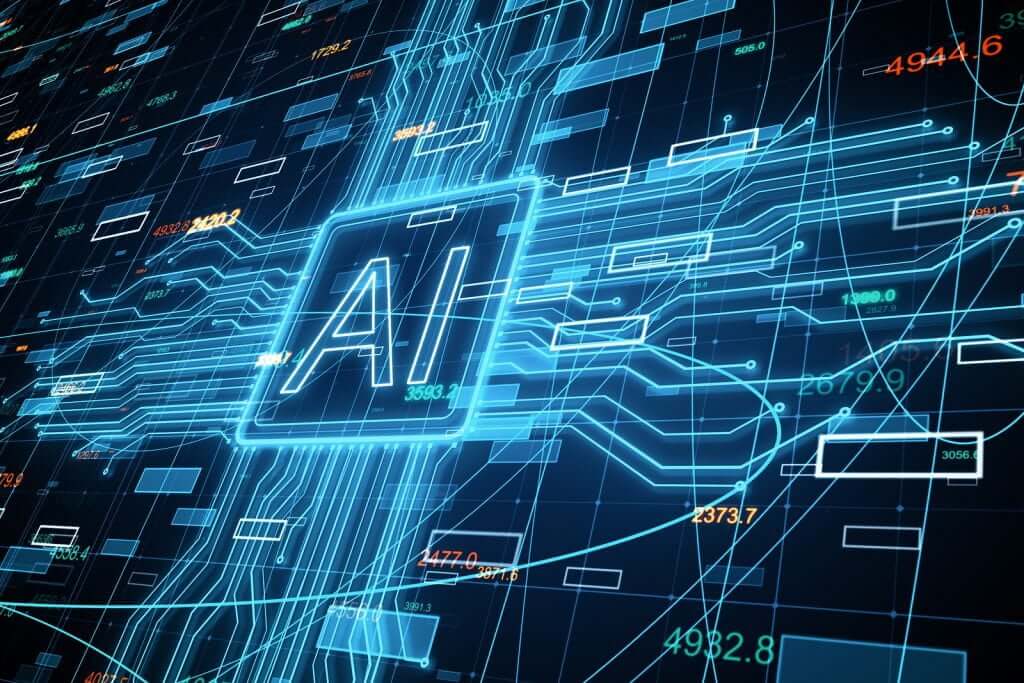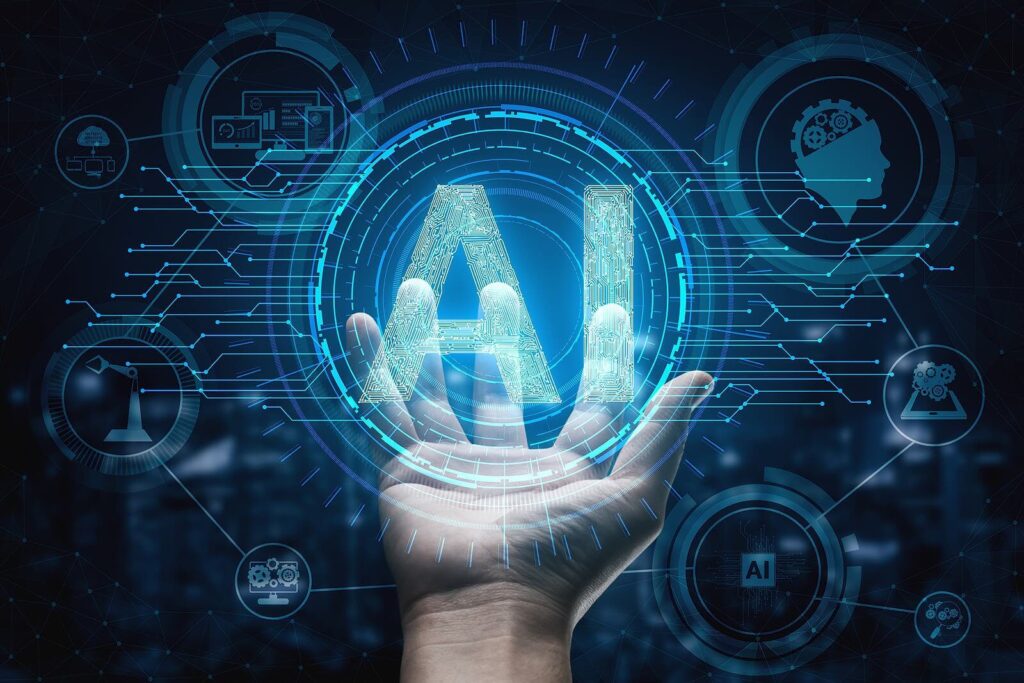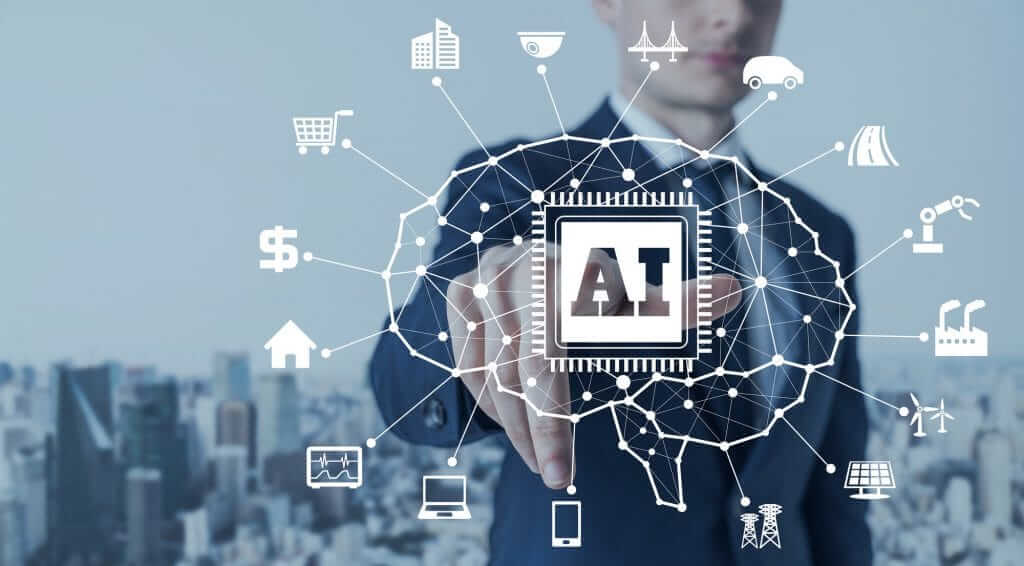
In the ever-evolving landscape of the job market, there’s a rumble in the professional jungle. It’s a Battle Royale, pitting the relentless power of Artificial Intelligence (AI) against the adaptability and creativity of humans. Who will emerge victorious? Let’s break it down and see who’s throwing the punches and who’s taking them in this ultimate showdown.
The Rise of AI: A Force to Be Reckoned With
Artificial Intelligence, or AI, has been making waves across industries. From self-driving cars to recommendation algorithms on your favorite streaming platform, AI is everywhere. But how is it affecting the job market?
AI’s Advantages:
- Speed and Efficiency: AI can crunch data faster than a cheetah chasing its prey. Tasks that used to take hours for humans can now be done in seconds, increasing productivity.
- Accuracy: AI doesn’t have off days or Monday blues. It consistently delivers precise results, reducing errors in tasks like data analysis and financial forecasting.
- Availability 24/7: While humans need their beauty sleep, AI systems are awake round the clock. This means services like chatbots can assist customers anytime, anywhere.
- Scalability: AI can scale up or down as needed. This flexibility is a game-changer for businesses dealing with fluctuating workloads.
AI’s Impact on Jobs
Now, the million-dollar question: Is AI taking our jobs?
The answer isn’t a simple ‘yes’ or ‘no.’ It’s more like a complex dance between man and machine. AI is replacing certain tasks, but it’s also creating new roles:
- Job Displacement: Routine, repetitive tasks are at risk. For instance, in manufacturing, robots have taken over assembly lines, reducing the need for manual labor.
- Job Creation: On the flip side, AI has birthed entirely new professions. Think about AI trainers, data analysts, and algorithm developers. These roles didn’t exist a decade ago.
- Enhancement, Not Replacement: Many experts argue that AI enhances human capabilities rather than replacing them. Doctors use AI to assist in diagnosis, lawyers employ it for research, and writers use AI for content generation.
The Human Element: Adaptability and Creativity

Humans, often considered the pinnacle of creation, have unique qualities that AI can’t replicate easily.
The Human Touch:
- Emotional Intelligence: Can AI understand human emotions and react accordingly? Not quite. Human customer service representatives excel in empathizing with clients.
- Creativity: AI can generate art or music, but can it truly create with passion and originality? That’s a challenge AI is still grappling with.
- Complex Problem-Solving: Humans are exceptional at tackling complex, unstructured problems. AI thrives in structured environments but falters when things get messy.
Job Market Relevance:
- Non-Replicable Skills: Professions that require emotional connection, creative thinking, or complex decision-making are less susceptible to AI takeover. These roles include therapists, artists, and strategists.
- Adaptability: Humans have the power to learn and adapt rapidly. In the fast-paced tech world, the ability to acquire new skills is invaluable.
- The Human Element: Customers often prefer interacting with humans in certain situations. For example, AI might assist with routine queries, but customers seek humans for more nuanced issues.
The Synergy: Humans and AI Working Hand in Hand
Rather than a battle for supremacy, the job market is witnessing a symbiotic relationship between AI and humans.
Collaboration, Not Competition:
- AI as a Tool: AI serves as a powerful tool in the hands of humans. It can handle the repetitive tasks, leaving humans to focus on creativity and strategy.
- AI Augmentation: Think of AI as a trusty sidekick. It augments human abilities, making them faster and more efficient. Doctors can diagnose with AI assistance, teachers can tailor lessons, and chefs can invent new recipes.
- Learning Together: Humans teach AI, and AI, in turn, teaches humans. This feedback loop fuels innovation and growth in both domains.
Preparing for the Future: Navigating the Job Market
As we navigate this Battle Royale, how can humans stay relevant in a world increasingly dominated by AI?
Future-Proofing Your Career:
- Lifelong Learning: The ability to learn new skills is your secret weapon. Stay curious and adaptable. Online courses and certifications are your allies.
- Embrace AI Tools: Don’t fear AI; embrace it. Learn to work alongside AI systems and leverage their capabilities.
- Master Soft Skills: Cultivate emotional intelligence, creativity, and critical thinking. These skills are your competitive advantage.
- Interdisciplinary Skills: Blend different skill sets. For example, if you’re a healthcare professional, understanding AI can open up exciting career paths in healthcare technology.
Industries in the Spotlight

Let’s shine a spotlight on a few industries and see how the Battle Royale is playing out:
- Healthcare: AI is transforming healthcare with predictive analytics, robotic surgeries, and drug discovery. But doctors and nurses still provide the vital human touch in patient care.
- Finance: In the world of finance, AI algorithms handle trading and fraud detection. However, financial advisors offer personalized strategies and empathy.
- Education: AI-powered platforms assist teachers in tailoring lessons to individual students. Yet, the teacher-student bond remains irreplaceable.
- Entertainment: AI recommends movies and music, but artists and writers create the content that feeds these algorithms.
The Final Verdict
As we navigate this multifaceted terrain in the AI vs. Humans Battle Royale, it’s essential to remember that this is not a one-time event but an ongoing journey. The rules are continually evolving, and success requires adaptability, resilience, and a willingness to embrace change.
So, who wins in this Battle Royale, AI or humans? The answer isn’t as clear-cut as a knockout punch. It’s more of a graceful tango.
AI excels in speed, accuracy, and scalability, making it a formidable force in certain domains. However, humans possess the unique ability to adapt, innovate, and connect emotionally, which AI struggles to replicate.
Instead of being rivals, AI and humans are partners in progress. They complement each other, pushing the boundaries of what’s possible.
As we move forward, the key lies in embracing the strengths of both AI and humans, finding synergy, and preparing ourselves for a job market that thrives on collaboration. It’s not AI vs. humans; it’s AI with humans, creating a harmonious future of endless possibilities.
Frequently Asked Questions (FAQs) – AI vs. Humans: The Job Market Battle Royale
In this FAQ section, we address some of the most common questions surrounding the ongoing battle between Artificial Intelligence (AI) and humans in the job market.
- Is AI really taking over human jobs?
AI is indeed automating certain tasks, which has led to the displacement of some jobs, particularly those involving repetitive and routine work. However, it’s also creating new jobs in AI-related fields and enhancing the capabilities of humans in various professions. So, while AI is changing the job landscape, it’s not an outright takeover.
- Which industries are most affected by AI?
Industries such as manufacturing, customer service, and data analysis have experienced significant AI-driven changes. Roles involving repetitive manual labor or data processing are more susceptible to automation. However, AI has also made inroads in healthcare, finance, education, and entertainment, augmenting human capabilities in these sectors.
- What skills should I develop to remain relevant in the job market?
To stay competitive in a job market influenced by AI, consider the following:
- Lifelong Learning: Continuously update your skills and knowledge.
- Embrace AI Tools: Learn to work alongside AI systems and leverage their capabilities.
- Master Soft Skills: Cultivate emotional intelligence, creativity, and critical thinking.
- Interdisciplinary Skills: Combine different skill sets for versatility in your career.
- Are there job roles that are AI-proof?
While no job is entirely immune to AI influence, roles that require emotional intelligence, creativity, complex problem-solving, and human interaction are less susceptible to automation. Professions like therapists, artists, strategists, and healthcare providers fall into this category.
- How can businesses benefit from the synergy between AI and humans?
Businesses can harness the power of AI to streamline operations, increase efficiency, and offer more personalized services to customers. Combining AI’s data-driven insights with human creativity and empathy can lead to innovative solutions and enhanced customer experiences.
- Is AI a threat to job security?
AI is transforming the job market, but it doesn’t necessarily pose a direct threat to job security. It reshapes job roles and responsibilities, and adapting to these changes is crucial for long-term job security. Embracing AI and continuously upgrading skills can make individuals more resilient in the evolving job market.
- Can AI replace human creativity?
AI can generate content, art, and music, but it lacks the genuine creativity and emotional depth that humans bring to these endeavors. While AI can assist in creative tasks, it’s unlikely to fully replicate the unique qualities of human creativity.
- How can I prepare for a career that involves AI?
If you’re interested in AI-related careers, consider pursuing education and training in fields such as machine learning, data science, and artificial intelligence. Additionally, gaining hands-on experience through projects and internships can be invaluable in building a career in AI.
- What is the future of AI in the job market?
The future of AI in the job market is one of collaboration and coexistence with humans. AI will continue to automate certain tasks, but it will also create new job opportunities and augment human capabilities. The key to success lies in adapting to this evolving landscape and embracing the strengths of both AI and humans.
- How can businesses balance the use of AI and human talent?
Businesses can strike a balance by identifying tasks that AI can automate effectively and tasks that require human creativity, empathy, and complex decision-making. Creating collaborative environments where AI enhances human capabilities rather than replaces them is essential for long-term success in the job market.